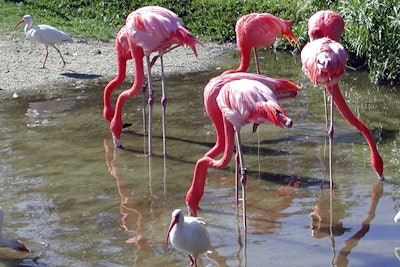
There’s no doubt the news that occasionally comes out about Venezuelans eating wild animals or zoo animals has an element of an urban legend. But, where there’s smoke, there’s fire. I would not be surprised, either, if it is true that they eat flamingos, pigeons and other birds.
The truth is that everything indicates that the food shortage in Venezuela is very serious. It is also true that if they are eating flamingos or pigeons, it is because the once prosperous Venezuelan poultry industry is no longer doing so well. There are not enough chicken and eggs being produced because there is no money to buy feed ingredients such as soybean meal or other inputs such as veterinary drugs, feed additives, etc.
The truth is that everything indicates that the food shortage in Venezuela is very serious.
The Venezuelan poultry industry, which relatively recently was growing at a rate of 8 percent per year and used to have large operations, fell 46 percent in chicken production and 50 percent in egg production from 2015 to 2016, according to sources in that country. However, truth be told, no one knows for sure what the correct figures are.
Until 2015, there was a Venezuelan company included in our Latin American top ten producers of chicken: Protinal. In its heyday, Protinal was among the largest companies in Latin America, fighting with Bachoco, San Fernando or Tres Arroyos (excluding the Brazilian companies) to be ranked among the top companies. Today, according to our research, Protinal produces 66 million broilers a year, almost three times less than five years ago.
Venezuela was also considered a large consumer among the countries that consume more than 40 kilograms (88 pounds) of chicken per person per year. This past year, Venezuelans ate 8 kilograms less of chicken than in 2015 (37.32 versus 45.40 kg) and four eggs less (184.66 versus 188.38 units).
As it might be expected, this puts at risk what has been achieved in recent decades. If changes are not implemented in the short term in all directions, the Venezuelan poultry industry will be further reduced. Goodness knows to what level. What do you think?

















